Is Heineken gluten-free? Let's get straight to the point. No, Heineken is not gluten-free. If you'd like to learn more about why it's not gluten-free, continue reading for a breakdown of the facts surrounding this topic.
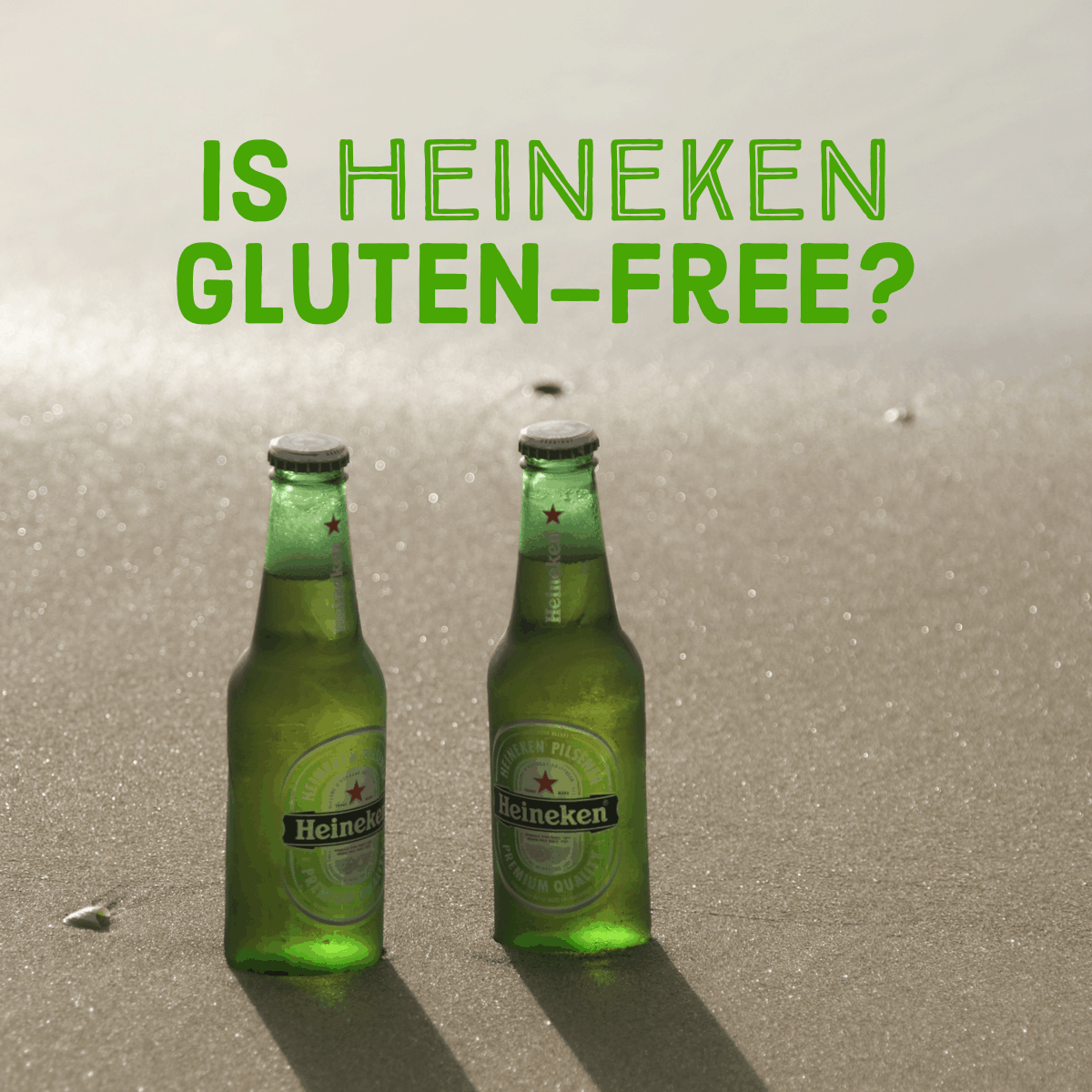
Jump to:
The Basics
At the most basic level, traditional beers are not gluten-free and that includes Heineken. Beer is brewed from malted barley or wheat and hops. Both barley and wheat grains contain gluten, which ultimately means there is gluten in beer. For this reason, traditionally brewed beers are not safe to consume on a gluten-free diet, especially if your diet is due to Celiac Disease.
It seems this would be an open and shut case. For most this information is sufficient to make a decision on whether or not to consume this beer. But as we know, it's not hard to find all sorts of confusing and misleading information on the internet, so let's take a minute to clear it all up, shall we?
The Truth Straight From Heineken
Take a look at Heineken. Even they seem to want to dance around the topic of whether or not their beer is gluten-free. Why? I have no idea, but apparently consumer safety is not at the forefront of their reasoning. Here's a look at what they have to say on the topic of gluten in their beer:
"Beer contains gluten, which comes from the grain used to brew it. Only a fraction of the gluten in the grain gets into the beer – the exact amount depends on the kind of grain used.
Brewing beer with barley leaves only traces of gluten in the beer, while wheat contributes considerably more. The brewing process can also affect gluten content. Generally speaking, the clearer and blonder the beer is, the less gluten it contains.
Some people are allergic to gluten and have to follow a diet that minimizes or excludes their gluten intake. Whether beer can be part of such a diet or not depends on the extent of the allergy and the type of beer consumed. In many cases, lager beers pose no problem for people who have a gluten allergy. However, it is up to individuals to assess their own sensitivity."
I mean, wow. This is remarkable the hoops they're trying to jump through here! You see, they've admitted that there is gluten in Heineken but they'd love it if people who are sensitive to gluten still consumed their beer anyway!
I hate to break it to Heineken, but regardless of the brewing process, that barley is used instead of wheat, or that it's a clear lager, the fact remains, there is gluten in Heineken beer.
Some (read: Heineken) might argue that maybe there are only traces of gluten in the beer, which could be below 20ppm, but how would you the consumer know that for sure? Well, you could test the beer, but there's a huge problem with that.
Problems With Testing Beer For Gluten
You can't just test any beer, including Heineken, for gluten and call it a day. This is because the gold standard test for detecting gluten in foods is not able to accurately detect the level of gluten in beer. Why is that?
- Gluten in beer is broken down into fragments during the fermenting process.
- The test can only reliably detect gluten that is intact.
- While the test may be able to detect some gluten fragments, there is no way of knowing how accurate the result is.
- Therefore, using these tests to detect gluten in beer can lead to false negatives. This means you could get a result of <20ppm but the actual level of gluten in the product is much higher.
Heineken Cannot Be Labeled Gluten-Free
Furthermore, Heineken beer can not be labeled gluten-free, even if you could accurately state that it contained less than 20ppm of gluten. Here's why:
- Traditional beers, beverages made with malted barley and hops, fall under the jurisdiction of the TTB (Alcohol and Tobacco Tax and Trade Bureau), not the FDA.
- According to the TTB, traditional beer can not be labeled "gluten-free" if it is made with a gluten-containing grain, like barley. They made this decision under the guidance of the FDA rules and the lack of appropriate testing methods.
- Heineken is made from barley, therefore it can not be labeled gluten-free under U.S. law.
Anecdotal Evidence Is Not Sufficient
Factual information aside, anecdotal evidence of "feeling fine" after consuming these beers does not mean that damage isn't being done to your body nor is it evidence that the beer doesn't contain gluten.
Barley does contain gluten and should be avoided, especially if you have Celiac Disease. The persons who "feel fine" after drinking regular beer may not have noticeable symptoms, but the damage to the intestines is likely still happening.
It's sad to me that Heineken would rather you damage your body in order to drink their beer instead of just telling you the outright truth, which is that there is gluten in Heineken and if you can't have gluten, you should not be consuming their beer.
TL;DR
I certainly can't tell you what to do with your body, but I can tell you that Heineken is not gluten-free. Heineken admits that there is gluten in their beer.
At this time, there is no standard test or reliable way of knowing the actual levels of gluten in regular beer. For that reason, regular beer, including Heineken, can not be labeled "gluten-free" in the U.S. since it is brewed with glutenous grains, like barley.
While you may not feel the effects outwardly, you should still avoid drinking Heineken if you are adhering to a strict gluten-free diet. Lucky for you, there are plenty of *actually* gluten-free beers out there for you to enjoy!
Thank you for reading! If you liked this article, be sure to check out related gluten-free resources below!
Gain access to our FREE exclusive mini-series:
Gluten-Free Baking and Lessons Learned!
Plus, be the first to know about new recipes and exciting announcements!
📩 Sign up for the Mini-Series Here! 📩
Disclaimer: The information in this article is the personal opinion of the author and for educational purposes only. This is not medical or nutritional advice. Please consult a doctor or medical professional before making changes to your diet or regarding any health related decisions. Ingredient information was accurate at the time of posting but should always be verified by the consumer by checking the product ingredient label for the most up to date information.
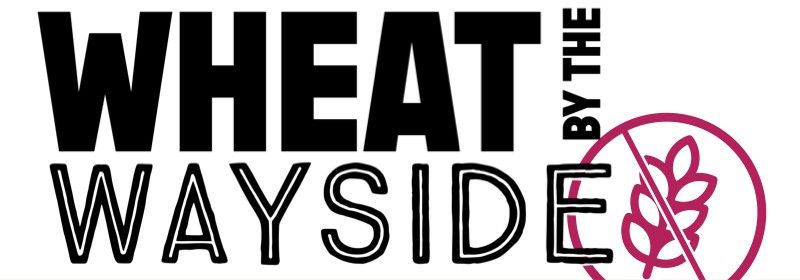
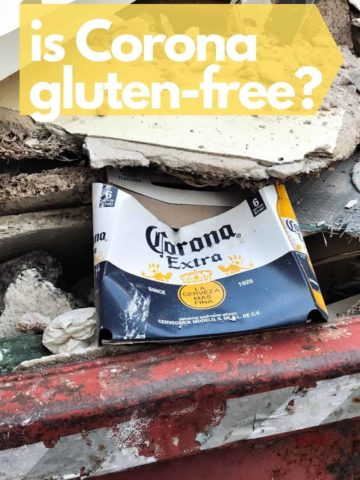
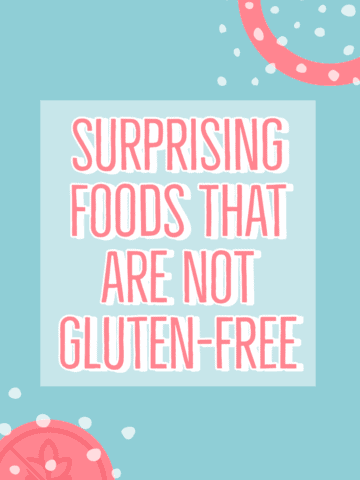


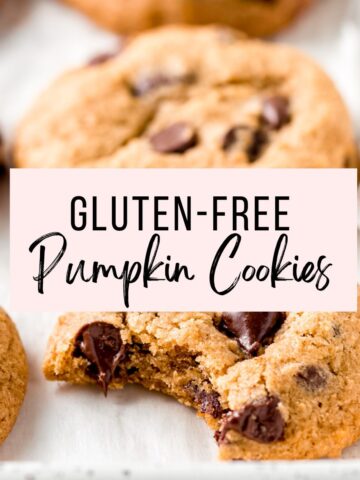



Comments
No Comments